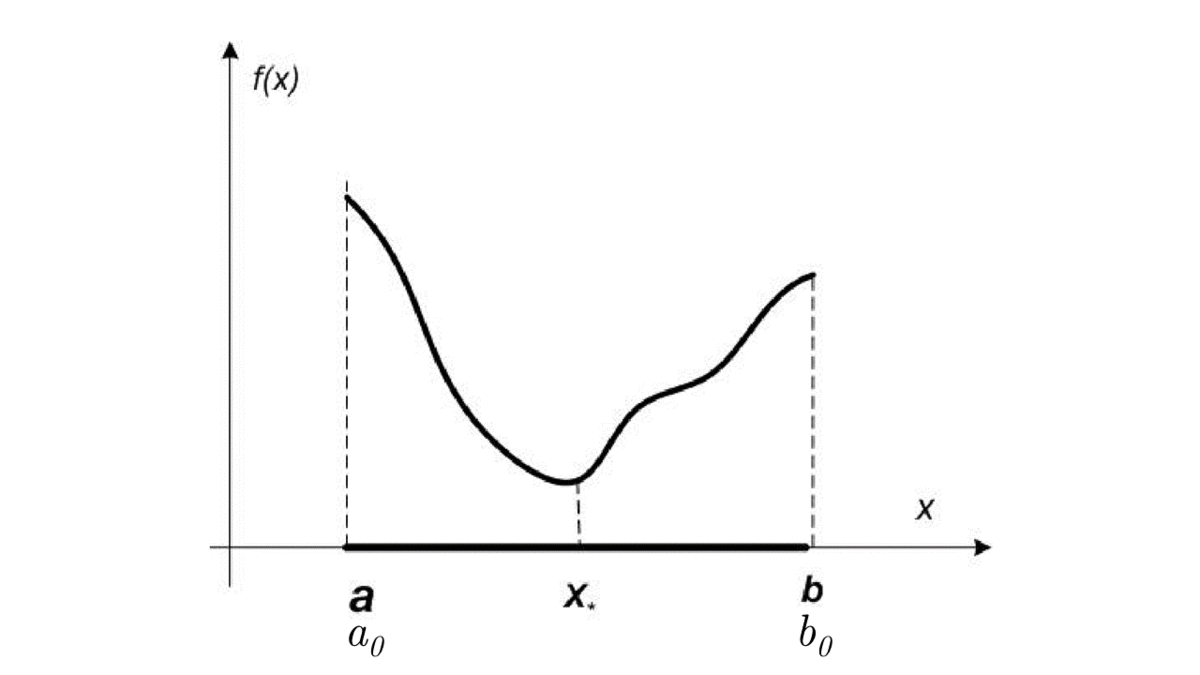Binary search
1 Idea
We divide a segment into two equal parts and choose the one that contains the solution of the problem using the values of functions.
2 Algorithm
def binary_search(f, a, b, epsilon):
c = (a + b) / 2
while abs(b - a) > epsilon:
y = (a + c) / 2.0
if f(y) <= f(c):
b = c
c = y
else:
z = (b + c) / 2.0
if f(c) <= f(z):
a = y
b = z
else:
a = c
c = z
return c
3 Bounds
The length of the line segment on k+1-th iteration:
\Delta_{k+1} = b_{k+1} - a_{k+1} = \dfrac{1}{2^k}(b-a)
For unimodal functions, this holds if we select the middle of a segment as an output of the iteration x_{k+1}:
|x_{k+1} - x_*| \leq \dfrac{\Delta_{k+1}}{2} \leq \dfrac{1}{2^{k+1}}(b-a) \leq (0.5)^{k+1} \cdot (b-a)
Note, that at each iteration we ask oracle no more, than 2 times, so the number of function evaluations is N = 2 \cdot k, which implies:
|x_{k+1} - x_*| \leq (0.5)^{\frac{N}{2}+1} \cdot (b-a) \leq (0.707)^{N} \frac{b-a}{2}
By marking the right side of the last inequality for \varepsilon, we get the number of method iterations needed to achieve \varepsilon accuracy:
K = \left\lceil \log_2 \dfrac{b-a}{\varepsilon} - 1 \right\rceil